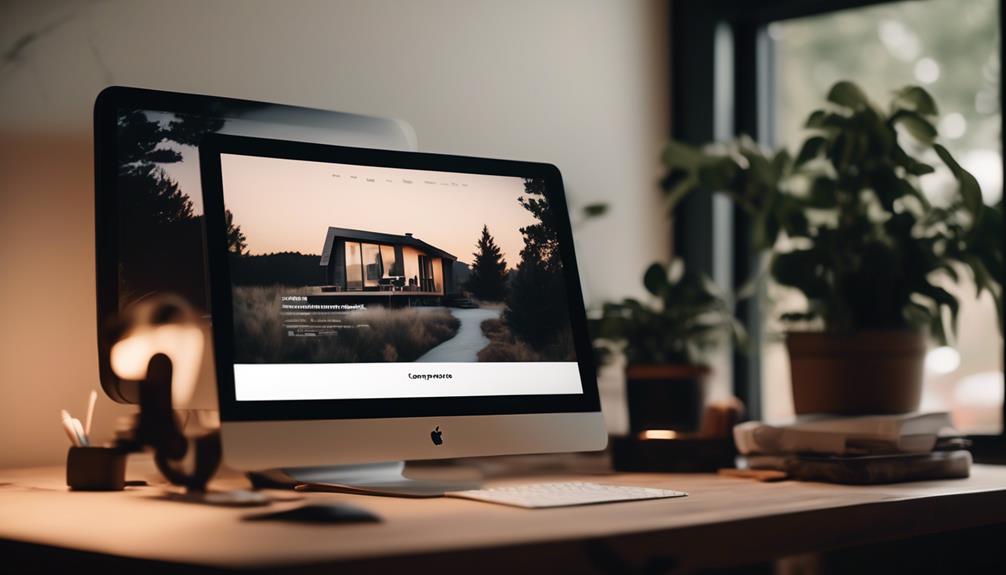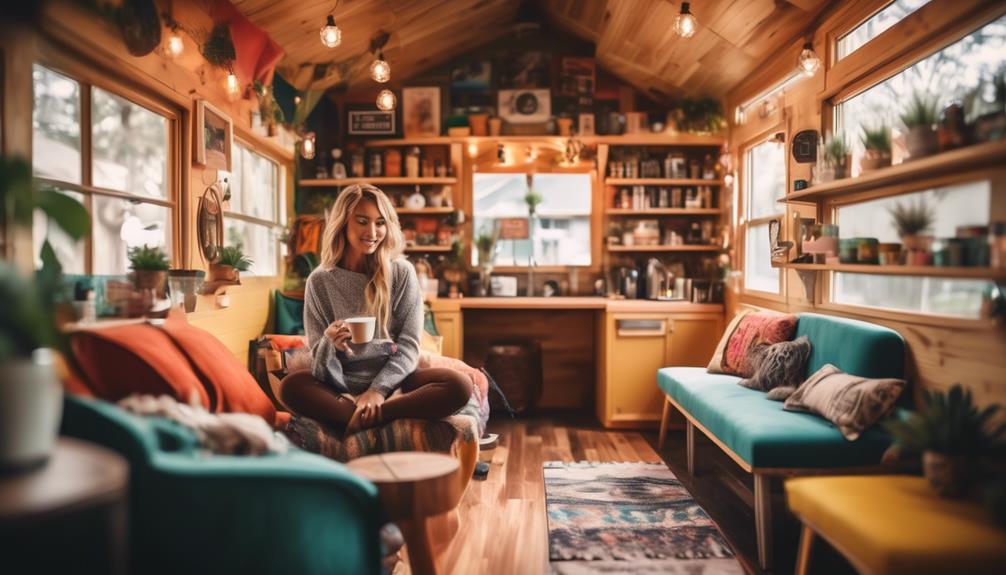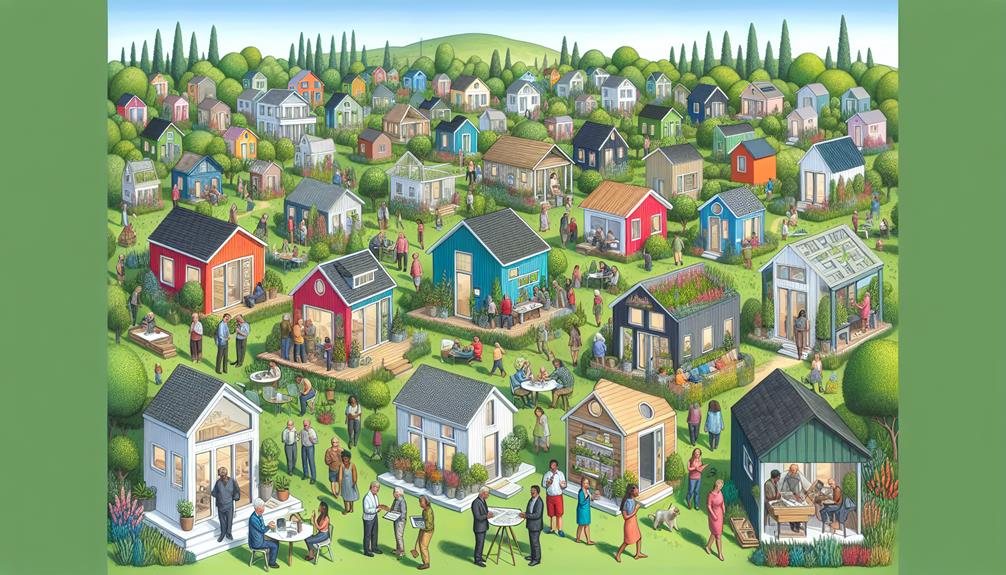Are you ready to take advantage of the thriving tiny house industry?
Curious about the insider tips that can help you kickstart your own business in this lucrative market?
Well, look no further!
This article will provide you with the essential knowledge and guidance you need to make your mark in the tiny house business.
From market insights and step-by-step instructions to creating a strong online presence and implementing effective marketing strategies, we've got you covered.
So, if you're eager to tap into this booming industry and turn your tiny house dreams into a successful reality, keep reading to discover the insider tips that will set you apart from the competition.
Key Takeaways
- The tiny house industry has been consistently growing, even during economic downturns and pandemics.
- Tiny houses cater to a wide range of demographics, including families, young professionals, and retirees.
- The tiny house market has experienced a significant increase in sales year over year, with projections for further growth in the next 10 years.
- Starting a successful tiny house business involves validating the idea, developing a business plan, defining the products or services to be offered, and utilizing efficient business tools.
Market Data and Statistics
The market data and statistics for the tiny house industry reveal a consistently growing market, even during economic downturns and pandemics. The tiny house market trends show that it has been resilient, experiencing a 67% increase in sales year over year.
This growth can be attributed to several factors driving the growth of the tiny house industry. Firstly, tiny houses cater to the pain points of various demographics, including families, young professionals, young married couples, the elderly, and retirees.
Secondly, even in recessions, people look to tiny houses as a solution due to their affordability and sustainability.
Lastly, studies estimate the tiny house market size to be worth $20.47 billion last year, with projections of $25.16 billion in the next 10 years. These statistics highlight the potential and profitability of starting a tiny house business.
Steps to Start a Tiny House Business
As you embark on starting your own tiny house business, it's essential to understand the necessary steps involved in bringing your idea to fruition. Here are three key steps to help you get started:
- Utilize business model validation: Before diving headfirst into your tiny house venture, it's crucial to validate your business model. Use templates and frameworks to assess the feasibility and viability of your idea. This process will help you identify potential risks, challenges, and opportunities, allowing you to refine your concept and increase your chances of success.
- Develop a tiny house business plan: A well-crafted business plan is the foundation for any successful enterprise. Outline your goals, target market, marketing strategies, financial projections, and operational processes. This plan will serve as your roadmap, guiding your decisions and actions as you navigate the competitive tiny house market.
- Use efficient business tools: To streamline your operations and maximize productivity, leverage efficient business tools. Explore software and technologies that can help you manage your finances, track inventory, schedule appointments, and communicate with customers. These tools will enable you to operate your tiny house business more effectively, freeing up time to focus on innovation and growth.
Creating a Professional Online Presence

To establish a strong online presence for your tiny house business, it's essential to create a professional website that showcases your unique offerings and attracts potential customers.
In the booming tiny house industry, branding plays a crucial role in distinguishing your business from competitors. Your website should reflect your brand identity through visually appealing designs, consistent messaging, and a user-friendly interface.
Additionally, social media platforms offer a powerful tool for promoting your tiny house business. Engage with your audience by regularly posting captivating content, sharing success stories, and encouraging customer interaction. Leveraging social media allows you to reach a wider audience, build brand awareness, and foster a sense of community.
Marketing Strategies for a Tiny House Business
Leveraging effective marketing strategies is essential for the success of your tiny house business. This will allow you to attract customers, increase brand visibility, and drive conversions. To achieve these goals, consider the following strategies:
- Social media advertising: Utilize platforms like Facebook, Instagram, and Twitter to reach a wide audience and promote your tiny house business. Create engaging content, use targeted advertising, and interact with your followers to build a loyal customer base.
- Influencer partnerships: Collaborate with influencers in the home design and sustainable living niche to expand your reach and gain credibility. By partnering with influencers who align with your brand values, you can tap into their loyal followers and generate buzz around your tiny house business.
- Content marketing: Develop valuable and informative content such as blog posts, videos, and guides that showcase the benefits of tiny house living. This won't only attract potential customers but also position your business as an authority in the industry.
Types of Tiny House Businesses

There are various profitable opportunities in the tiny house industry, including designing, building, selling, and flipping homes. However, another lucrative business venture in this industry is renting properties. Renting tiny houses can provide a steady income stream and attract a different customer base.
Renting vs. selling tiny houses has its pros and cons. Renting allows for recurring income, flexibility in location, and the opportunity to showcase unique designs to a wider audience. On the other hand, selling tiny houses can provide a higher upfront profit and allow for more control over the property. It ultimately depends on your business goals and preferences.
To stand out in the market, innovative tiny house designs are crucial. Incorporating unique features, environmentally friendly elements, and maximizing space efficiency can attract customers seeking a one-of-a-kind living experience. Exploring creative architectural designs and utilizing sustainable materials can also differentiate your business from competitors.
Frequently Asked Questions
What Are Some Common Challenges or Obstacles That Entrepreneurs Face When Starting a Tiny House Business?
Starting a tiny house business can present common challenges such as competition, finding customers, and navigating regulations. To overcome these obstacles, entrepreneurs should focus on effective marketing strategies to attract customers and differentiate their business in the growing market.
How Can I Finance My Tiny House Business and What Are the Typical Startup Costs Involved?
To finance your tiny house business, explore options like loans, crowdfunding, or personal savings. Conduct a cost analysis to determine startup expenses, including materials, labor, marketing, and permits. Plan wisely to ensure financial success.
Are There Any Legal or Zoning Regulations That I Need to Be Aware of When Starting a Tiny House Business?
When starting your tiny house business, it's crucial to be aware of legal restrictions and zoning requirements. These regulations vary by location and can impact your ability to build, sell, or rent tiny houses.
How Can I Find Reliable Suppliers or Contractors for Building or Designing Tiny Houses?
To find reliable suppliers and contractors for building or designing tiny houses, start by researching industry directories, attending trade shows, and networking with other professionals in the field. Obtain references and review their previous work to ensure their expertise and quality.
What Are Some Potential Target Markets or Customer Segments That I Should Consider When Starting a Tiny House Business?
When starting a tiny house business, it's crucial to consider potential target markets and customer segments. By conducting a competitive analysis and implementing effective marketing strategies, you can attract customers and tap into profitable opportunities in the industry.
Conclusion
So, are you ready to join the tiny house revolution and start your own business?
With the market booming and the potential for success, now is the perfect time to dive in. By following the steps outlined in this article, you can navigate the industry with ease and create a thriving business.
Remember, the tiny house industry isn't just about building and selling homes, but also about tapping into the desires and dreams of individuals seeking a simpler, more sustainable lifestyle.
Embrace the opportunities that lie ahead and make your mark in this exciting market.

